Some notable examples include:
.svg)
.svg)
.svg)
.svg)
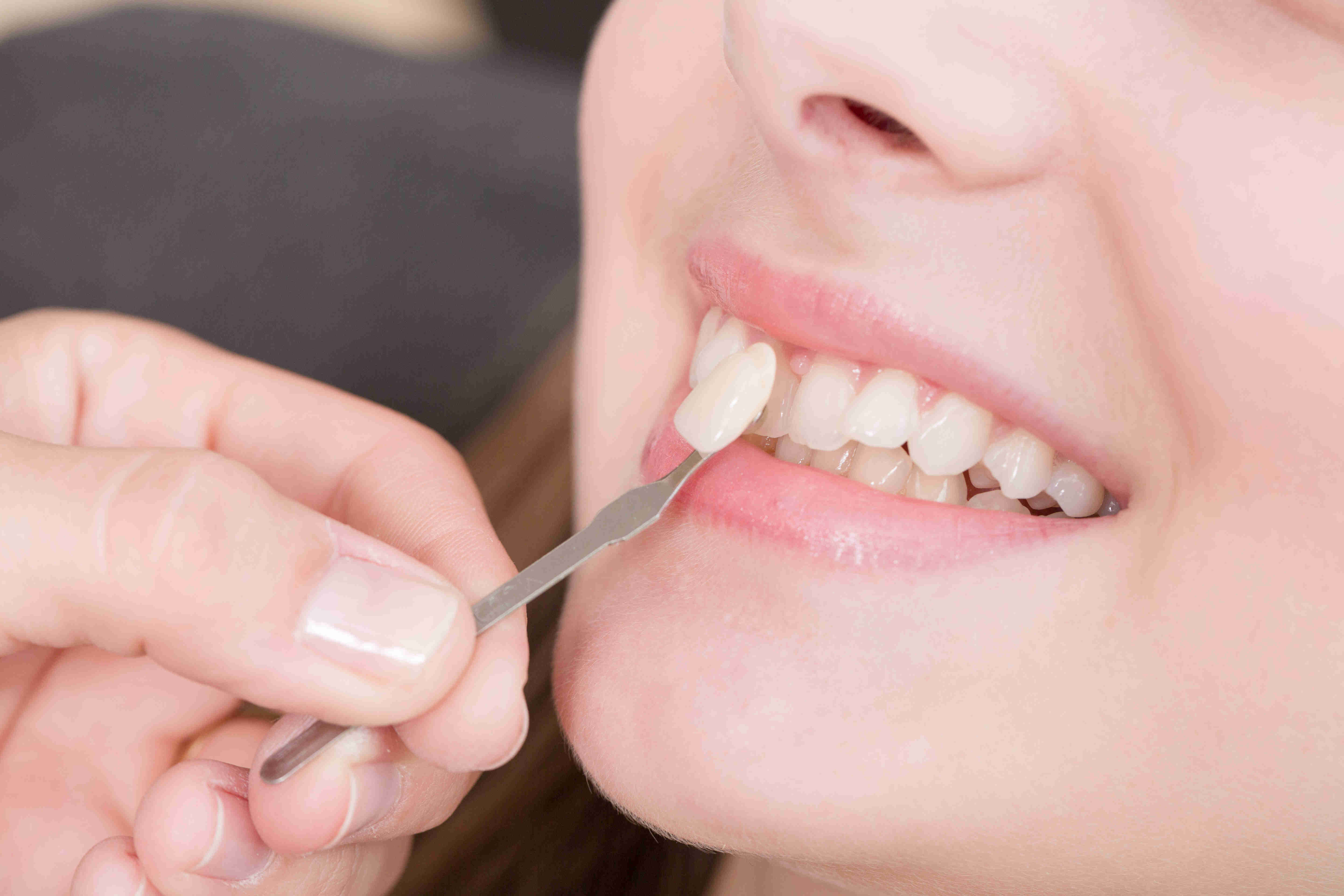
Dental Veneers
Dental veneers are considered as a fairly quick yet long-lasting solution to get the smile that patients desire, usually over a few days depending on the existing issues.

Several celebrities have opted for dental veneers to enhance their smiles.
It's important to note that while these celebrities are often associated with dental veneers, the information about their dental procedures is based on speculation and not all confirmed by the individuals themselves.
Dental veneers are thin, custom-made shells that are designed to cover the front surface of teeth to improve their appearance. They are made from either porcelain or composite resin material and can be used to correct a range of dental imperfections, including crooked, stained, or chipped teeth.
According to the American Academy of Cosmetic Dentistry, dental veneers are one of the most popular cosmetic dentistry procedures (89% of orthodontic patients in the study had veneers done). Additionally, a study conducted by the National Institutes of Health found that dental veneers can last anywhere from 5 to 10 years with proper care. making them a long-lasting solution for those looking to enhance their smile.
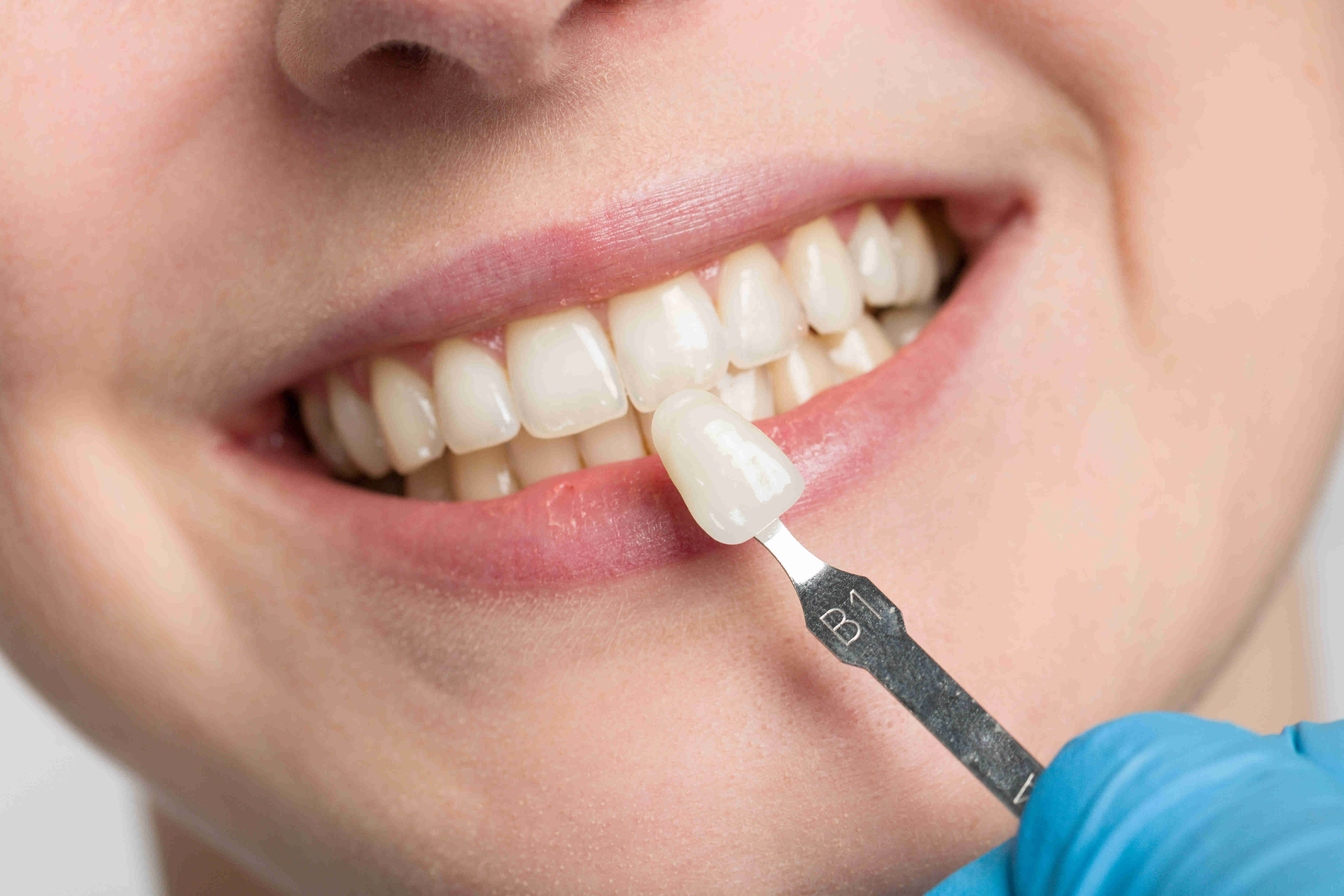
What dental problems can veneers treat?
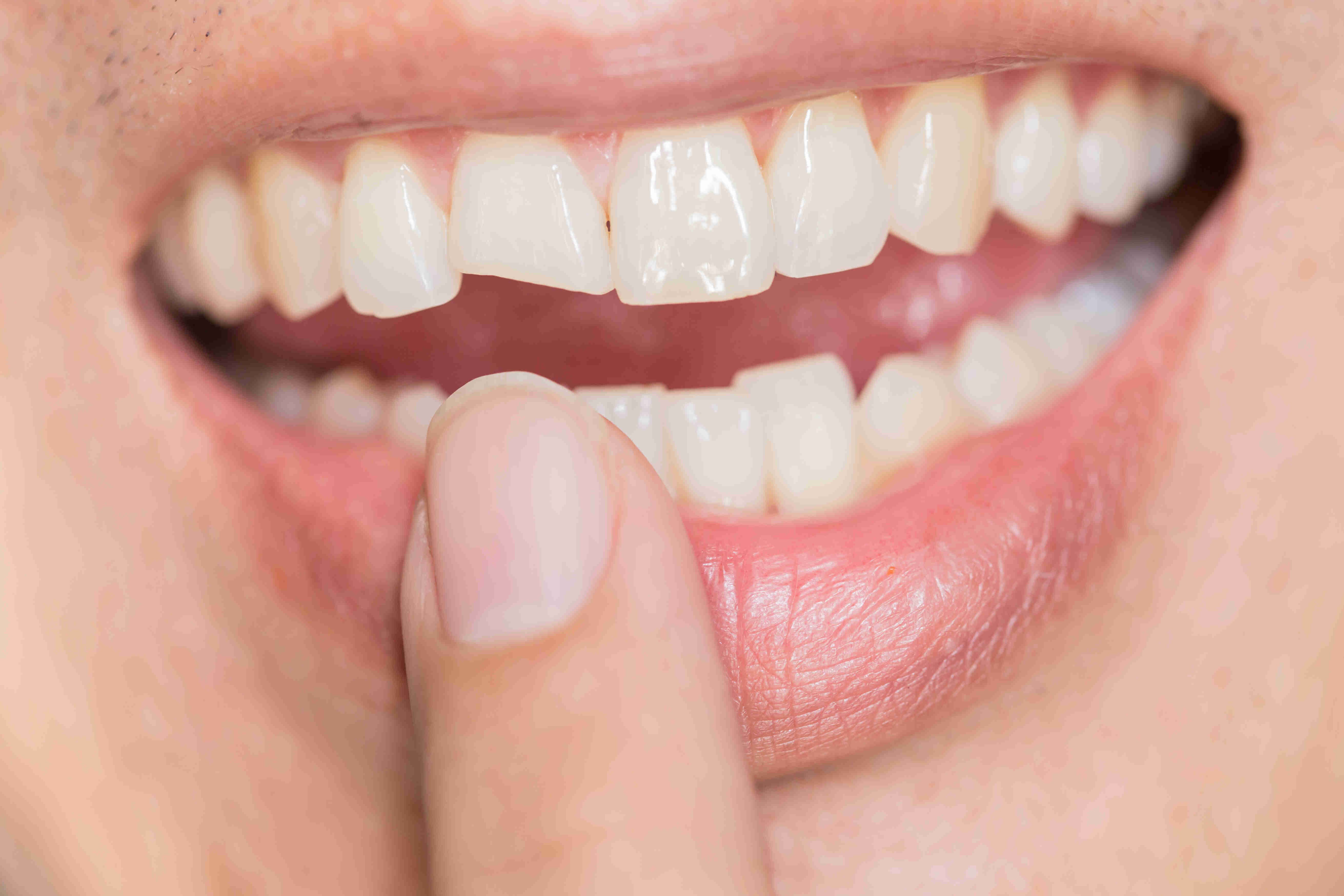
Chipped or cracked teeth
One common use of veneers is to treat chipped or cracked teeth, as the thin shells can effectively cover and protect the damaged tooth. By covering the chipped or cracked area, the dental veneer restores the tooth's appearance and provides an additional layer of protection. The veneer acts as a barrier, preventing further damage and minimising the risk of sensitivity or discomfort associated with exposed tooth structure.
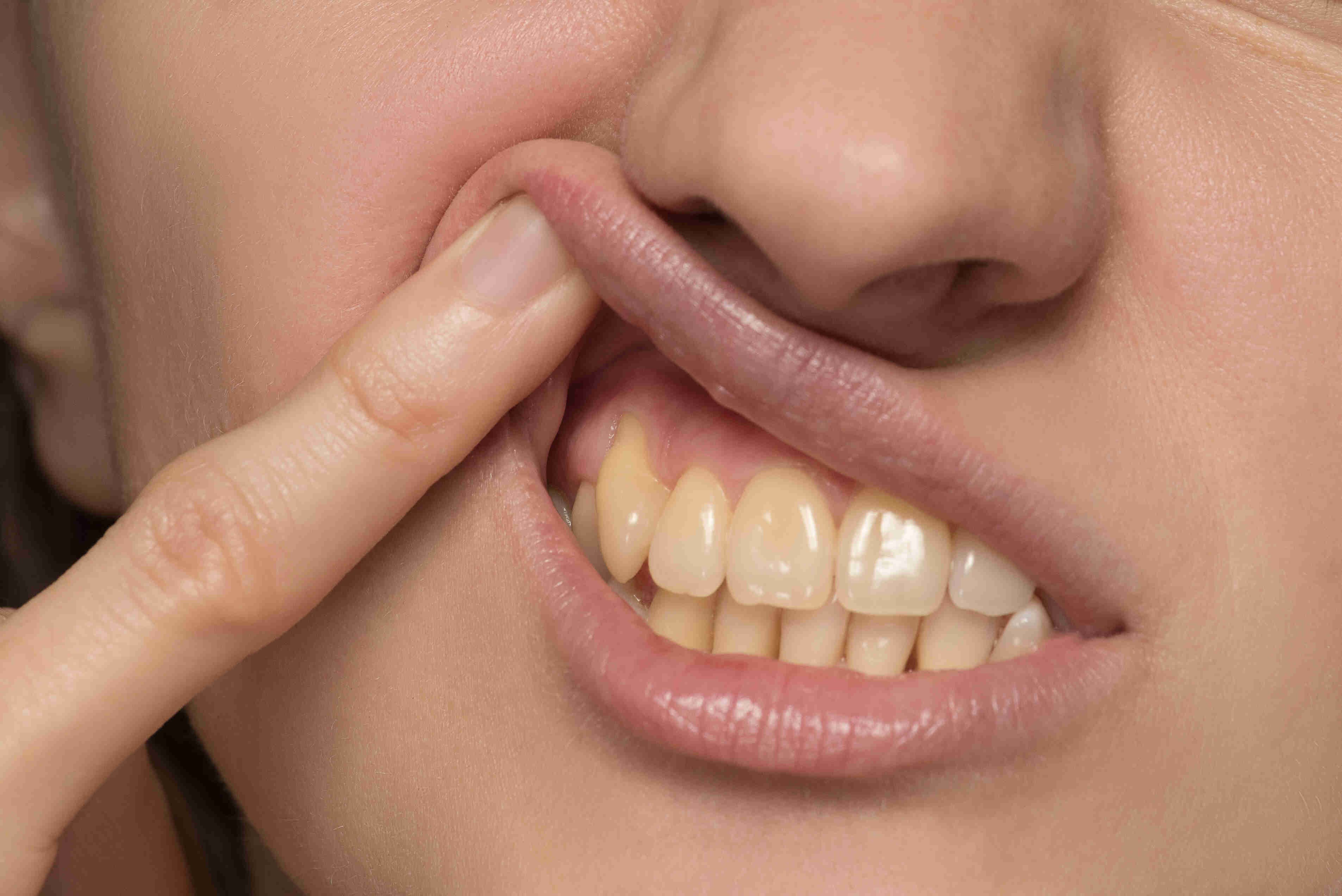
Discoloured teeth
Another common use of veneers is to treat discoloured teeth, whether from intrinsic factors like medication use or genetics, or extrinsic factors like tobacco use or consumption of staining foods and drinks. Dental veneers are an excellent solution for addressing tooth discoloration, as they effectively conceal and mask the stains, resulting in a uniform and dazzling smile. By placing veneers on the discoloured teeth, the veneers hide any discoloration and create a consistent, white appearance that enhances your overall smile aesthetics.
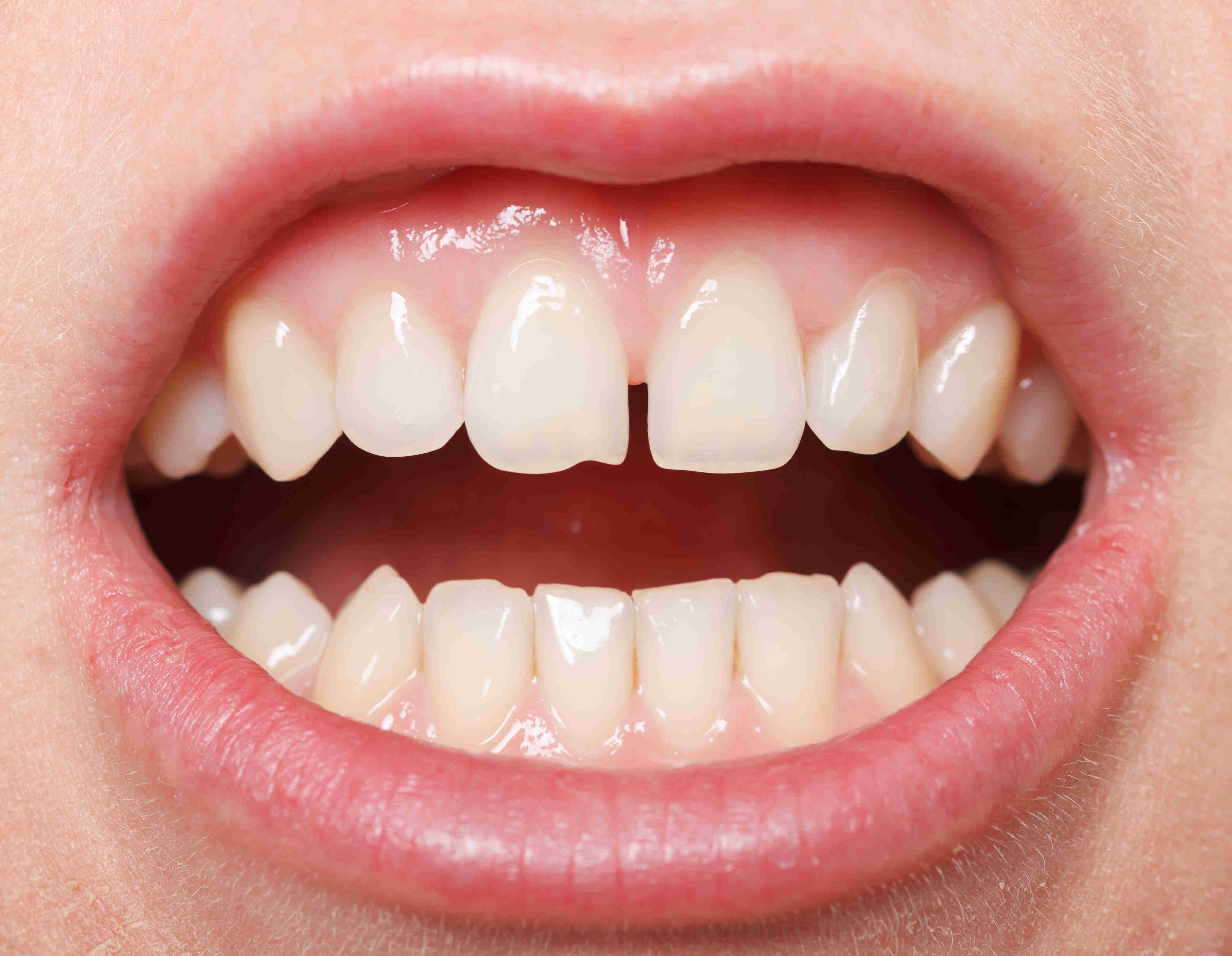
Gaps between teeth
Dental veneers can also be used to close gaps between teeth, providing a more uniform appearance to the smile. The veneers are customised to fit your teeth and are bonded to the front surface, which helps widen the teeth and eliminate the gaps. This not only enhances the appearance of your smile but also improves dental aesthetics by creating a more balanced and aligned tooth alignment.
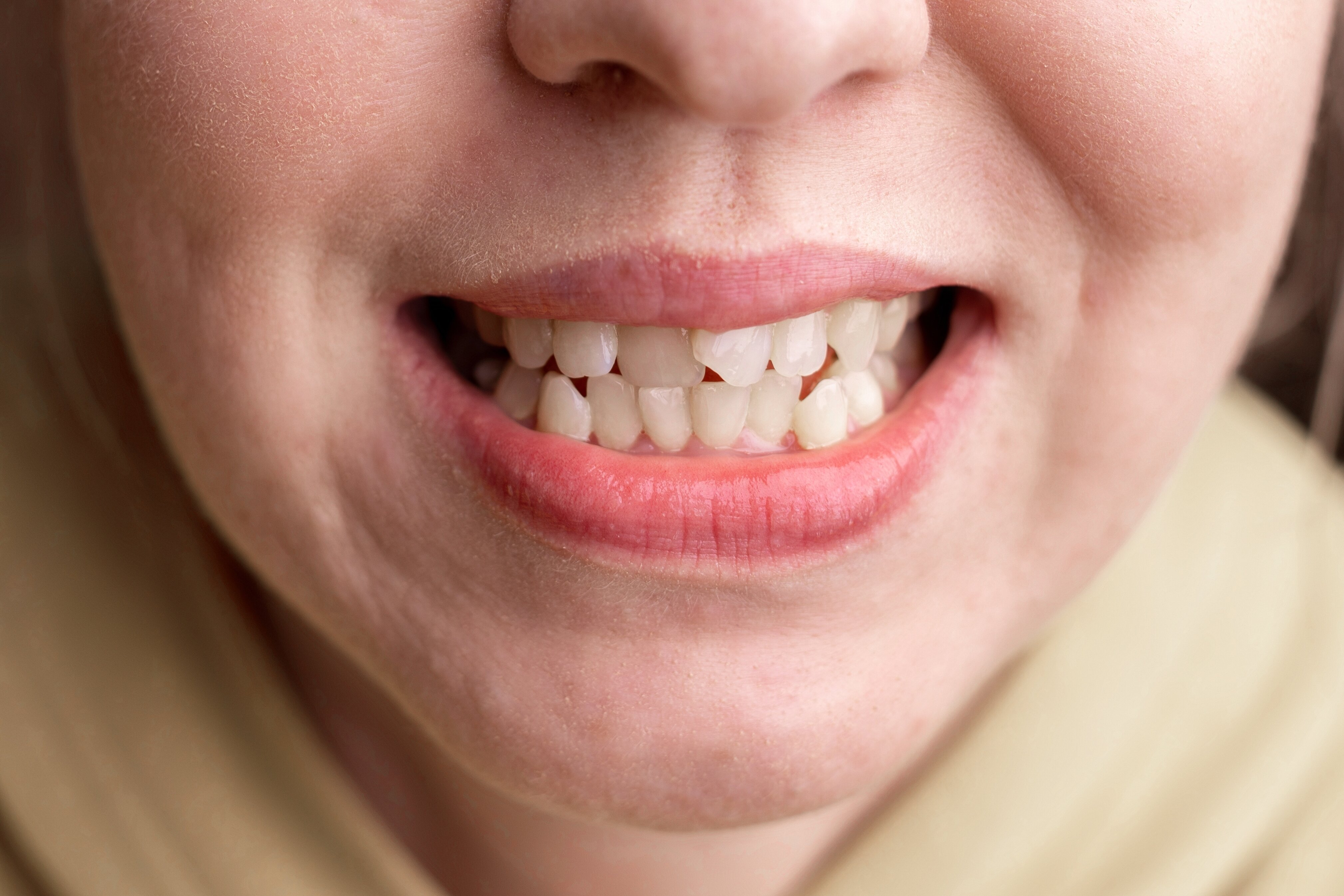
Misshapen teeth/Slightly misaligned teeth
By placing veneers on the misshapen teeth, the veneers effectively reshape and redefine their appearance, resulting in a more attractive smile. They can correct irregularities such as unevenness, small or large teeth, and other shape abnormalities. In situations where the misshaping is severe or caused by structural issues, alternative treatments such as orthodontics or dental crowns may be recommended.
Types of Dental Veneers
There are two main types of dental veneers: porcelain veneers and composite resin veneers.
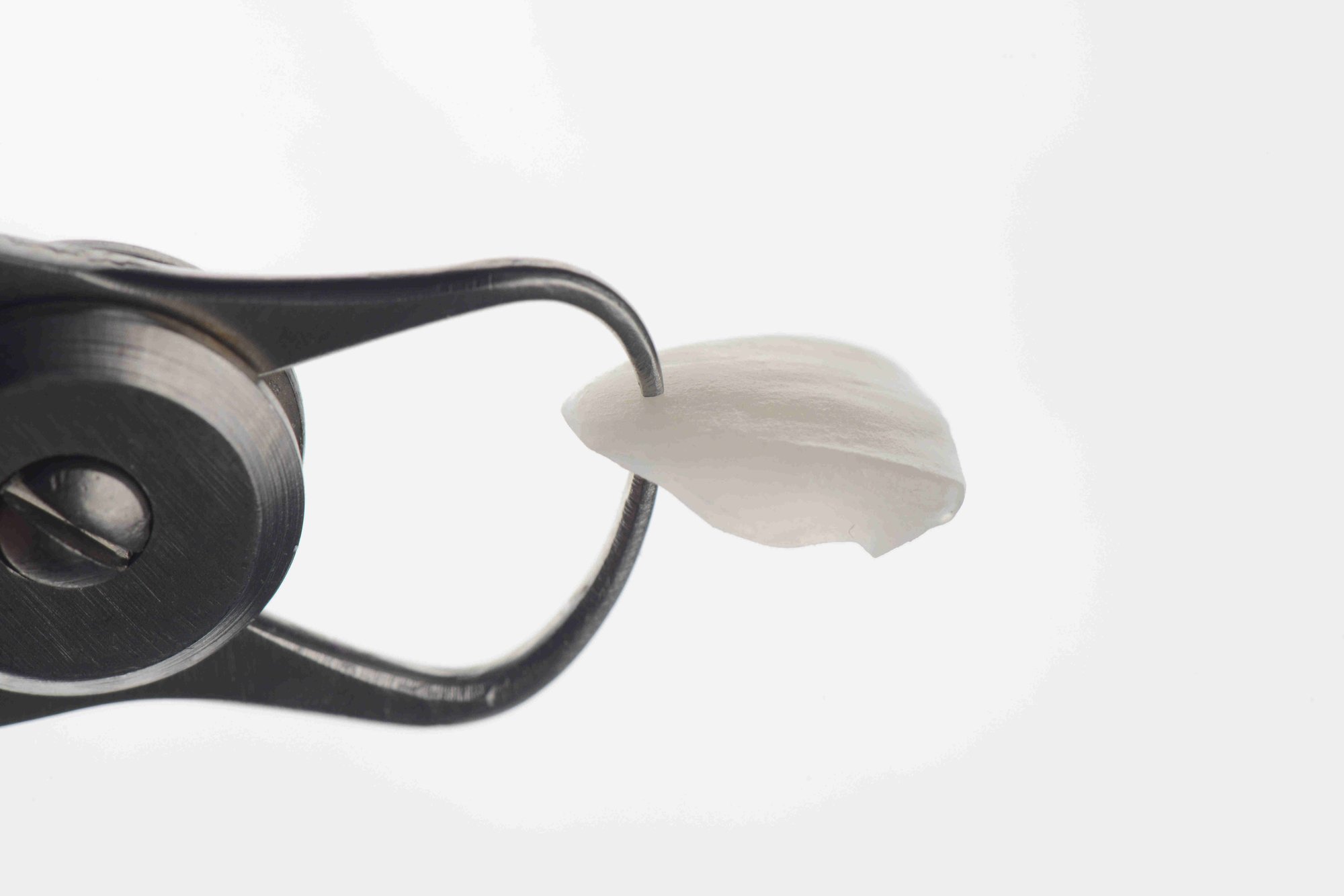
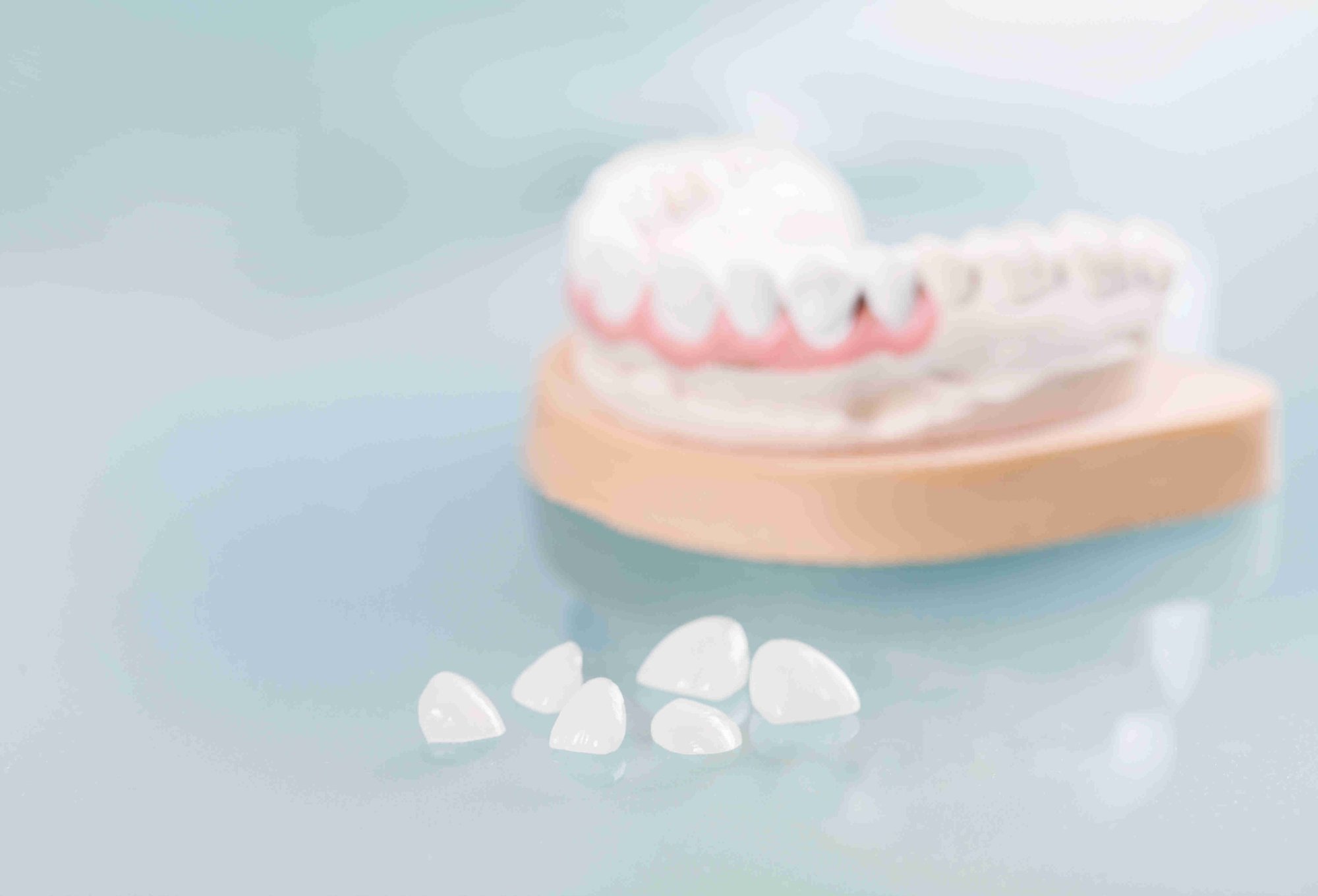
The Nuffield Digital Smile Design Difference
| Porcelain Veneers | Composite Resin Veneers | |
|---|---|---|
| Material | Porcelain |
Tooth-coloured filling material |
| Appearance | Natural-looking, translucent, and mimics the sheen of natural teeth |
Less translucent and may not match natural teeth as closel |
| Durability | Highly durable and resistant to staining or discoloration |
Less durable and more prone to chipping or staining over time |
| Lifespan | Typically last for 10-15 years or longer with proper care |
May last for 5-7 years or less |
| Tooth preparation | Requires some tooth preparation, including removal of a thin layer of enamel |
Requires less tooth preparation and removal of less enamel |
| Cost | More expensive than composite resin veneers |
Less expensive than porcelain veneers |
| Maintenance | Require regular dental check-ups and proper oral hygiene to maintain longevity |
May require more frequent repairs or replacements due to chipping or staining |
| Reversibility | Reversible; flexible matueral and can be removed without causing significant damage to the natural tooth structure |
Reversible; flexible matueral and can be removed without causing significant damage to the natural tooth structure |
What is dental veneer treatment like?

When you get veneers, it's like giving your teeth a special new coat that makes them look better. Here's what the treatment involves, step by step:
Overall, getting veneers is a pretty simple process that can make a big difference in the way your teeth look. Just remember to take good care of your teeth afterward so your veneers can last a long time.
The dental veneers procedure is generally not painful, as it is typically performed under local anaesthesia to ensure patient comfort. During the procedure, the dentist will prepare the tooth or teeth by removing a thin layer of enamel to make room for the veneer. This process is usually painless, as the tooth and surrounding area will be numbed by the local anaesthesia.
After the preparation is complete, the dentist will take impressions of the teeth and send them to a dental laboratory to create the custom veneers. During this time, the patient may wear temporary veneers to protect the prepared teeth.

Once the final veneers are ready, the dentist will bond them to the teeth using a special adhesive. This process may involve some minor pressure or discomfort, but it should not be painful. After the veneers are in place, the dentist will check the patient's bite and make any necessary adjustments to ensure proper fit and comfort.
While the dental veneers procedure itself is typically not painful, some patients may experience mild sensitivity or discomfort in the days following the procedure as the teeth adjust to the new veneers. This is normal and should subside within a few days. Patients can take over-the-counter pain relievers as needed to manage any discomfort.
Overall, with proper anaesthesia and pain management, the dental veneers procedure should be a comfortable and relatively pain-free experience for most patients.

How much do dental veneers cost in Singapore?
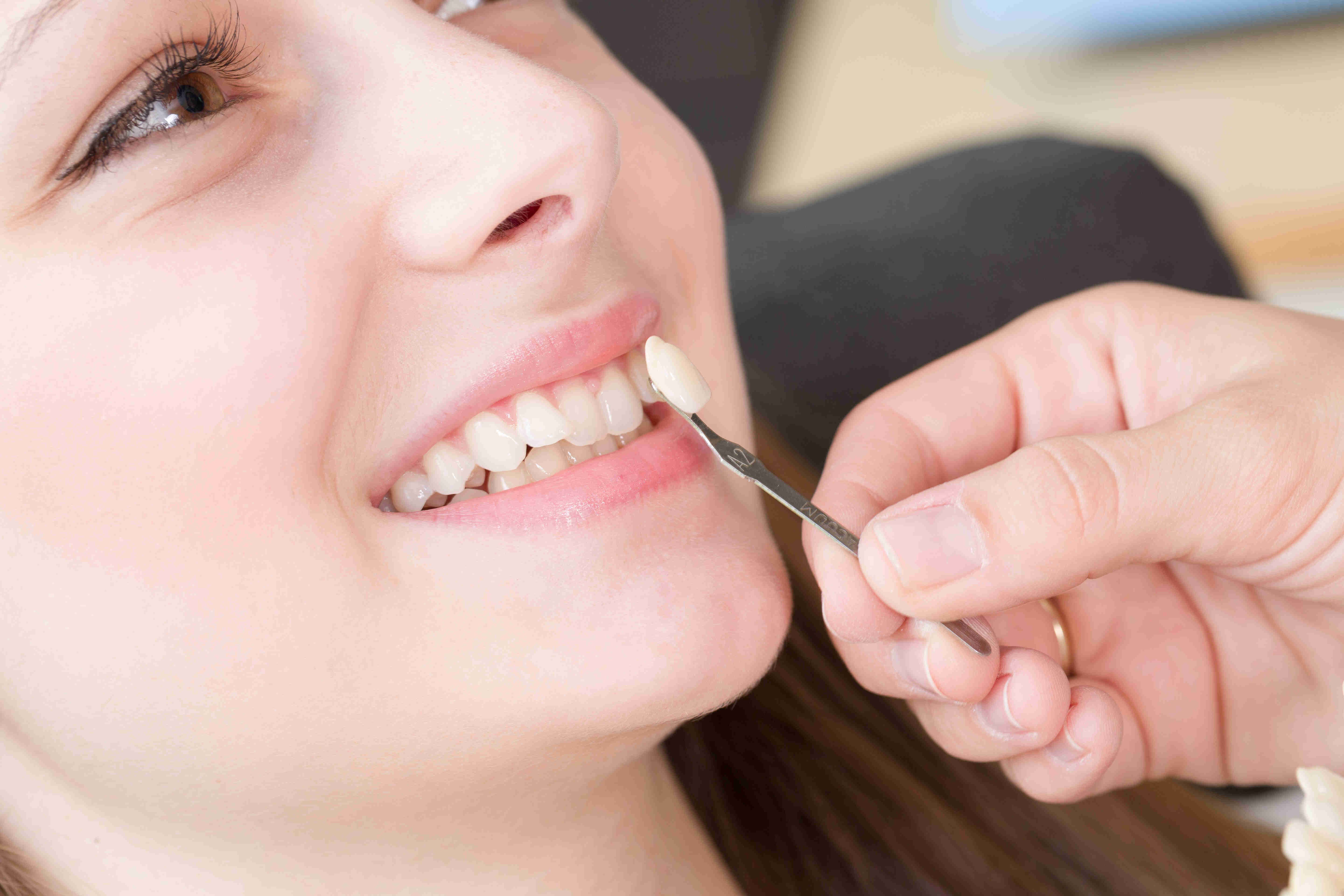
The price range for porcelain veneers is typically between $1,000 and $2,500 per tooth, while composite resin veneers range from $250 to $1,500 per tooth. However, it's important to keep in mind that the actual cost can vary depending on a number of factors, including the following:
It's important to discuss the cost of veneers with your dentist during your consultation so you have a clear understanding of the fees involved and can make an informed decision about your treatment.
What are the benefits of using dental veneers?
Here are some of the key benefits of dental veneers:
Veneers vs crowns - What is the difference?
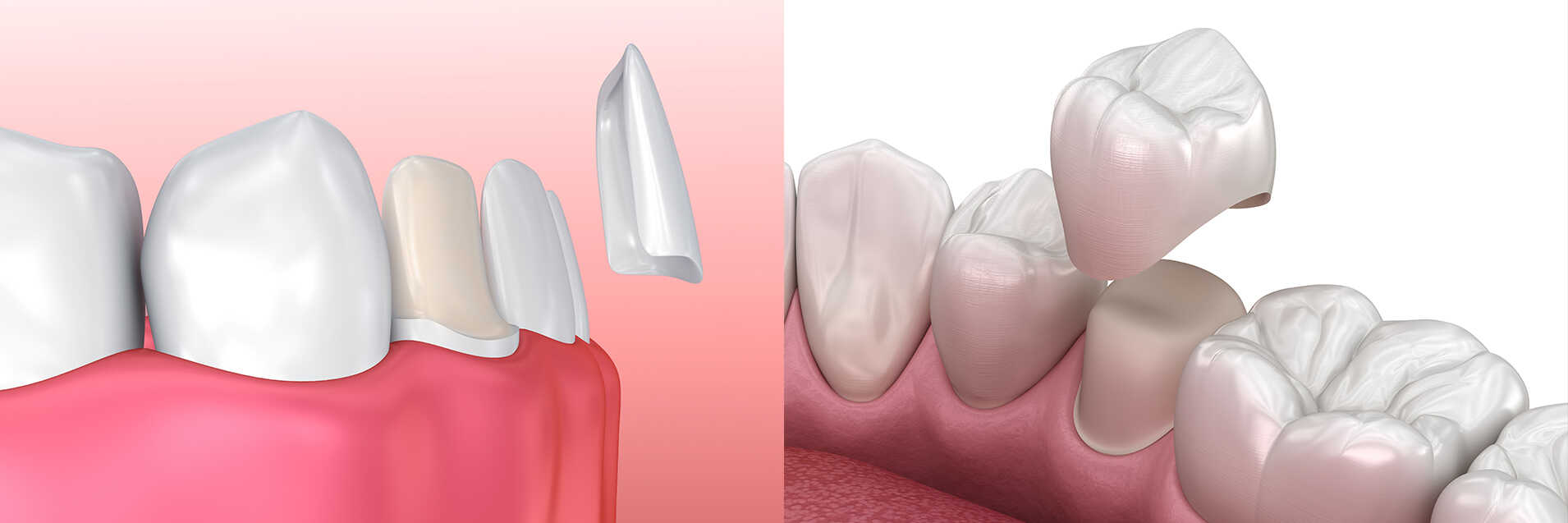
Dental veneers and dental crowns are two popular cosmetic dentistry options that can improve the appearance and function of your teeth. Here are the key differences between dental veneers and dental crowns:
Purpose:
Veneers are primarily used for cosmetic purposes, while crowns are used for both cosmetic and restorative purposes. Crowns can help to strengthen and protect weakened or damaged teeth, while veneers are designed to cover up cosmetic imperfections.
Material
Veneers are typically made from porcelain or composite resin, while crowns can be made from a variety of materials, including porcelain, metal, or a combination of both.
Longevity:
Crowns are generally more durable and longer-lasting than veneers, as they provide more protection for the underlying tooth structure. However, both veneers and crowns can last for many years with proper care and maintenance.
Tooth preparation:
Veneers require minimal tooth preparation, as only a thin layer of enamel needs to be removed from the front surface of the tooth. Crowns, on the other hand, require more extensive tooth preparation, as a larger amount of tooth structure needs to be removed to make room for the crown.
Coverage:
Veneers only cover the front surface of the tooth, while crowns cover the entire tooth. This means that crowns can provide more comprehensive coverage and protection for weakened or damaged teeth.
Veneers vs crowns at a glance
| Dental Veneers | Dental Crowns |
|---|---|
| Primarily used for cosmetic purposes | Used for both cosmetic and restorative purposes |
| Minimal tooth preparation required | More extensive tooth preparation required |
| Typically made from porcelain or composite resin | Can be made from a variety of materials, including porcelain, metal, or a combination |
| Cover only the front surface of the tooth | Cover the entire tooth |
| Provide less protection for the underlying tooth structure | Provide more comprehensive coverage and protection for weakened or damaged teeth |
| Generally less durable than crowns | Generally more durable than veneers |
Ultimately, the choice between veneers and crowns will depend on your specific dental needs and goals. Your dentist can help you determine which option is best for you based on factors such as the condition of your teeth, the extent of tooth preparation required, and your overall cosmetic goals.
FAQs About Dental Veneers @ Nuffield Dental
How long does dental veneers last?
The longevity of dental veneers depends on several factors, including the material used, the quality of the bond between the veneer and the tooth, and the patient's oral hygiene habits.
Porcelain veneers are generally more durable and longer-lasting than composite resin veneers. With proper care and maintenance, porcelain veneers can last for 10-15 years or even longer. Composite resin veneers may last for 5-7 years with proper care, but they may need to be replaced more frequently than porcelain veneers due to their tendency to chip or stain over time.
To maximise the lifespan of your dental veneers, it's important to maintain good oral hygiene habits, such as brushing twice a day, flossing daily, and visiting your dentist for regular check-ups and cleanings. You should also avoid habits that can damage your veneers, such as biting your nails, chewing on hard objects, or grinding your teeth.
Do you need to visit the dentist for dental veneer aftercare?
Yes, it is important to visit a dentist for dental veneers aftercare. While dental veneers are a relatively low-maintenance cosmetic dentistry option, they still require some basic care and maintenance to ensure their longevity and to prevent potential complications.
After getting dental veneers, your dentist will typically provide you with instructions for how to care for your new veneers. This may include avoiding hard or crunchy foods that could damage the veneers, using a non-abrasive toothpaste and a soft-bristled toothbrush to brush your teeth, and flossing daily to remove plaque and debris from between your teeth and around your veneers.
Regular check-ups and cleanings with your dentist are also important for maintaining the health of your veneers and your overall oral health. During these visits, your dentist can evaluate the condition of your veneers and identify any signs of damage or wear.
What is the difference between dental veneers and dental bonding?
Dental veneers and dental bonding are both cosmetic dentistry treatments that can be used to improve the appearance of teeth. However, there are several key differences between the two:
Materials: Dental veneers are typically made from either porcelain or composite resin, while dental bonding involves the use of a tooth-coloured resin material.
Purpose: Dental veneers are primarily used for cosmetic purposes, such as improving the appearance of stained, chipped, or misaligned teeth. Dental bonding, on the other hand, can be used for both cosmetic and restorative purposes, such as repairing small chips or cracks in teeth.
Preparation: The preparation required for dental veneers is generally more extensive than that required for dental bonding. Dental veneers typically require the removal of a thin layer of tooth enamel to accommodate the veneer, while dental bonding usually requires only minimal tooth preparation.
Durability: Dental veneers are generally more durable and longer-lasting than dental bonding. With proper care, dental veneers can last for 10-15 years or even longer, while dental bonding may need to be repaired or replaced more frequently due to its tendency to chip or wear over time.
Cost: Dental veneers are generally more expensive than dental bonding, as they require more extensive preparation and are made from more durable materials.
Are dental veneers permanent?
Dental veneers are not considered a permanent solution, as they will likely need to be replaced at some point in the future. However, with proper care and maintenance, dental veneers can last for a decade or more before they need to be replaced.
The lifespan of dental veneers can vary depending on several factors, including the material they are made from, how well they are cared for, and the overall condition of the patient's teeth and gums. Porcelain veneers, for example, are generally more durable and longer-lasting than composite resin veneers.
To help extend the lifespan of your dental veneers, it's important to practise good oral hygiene habits such as brushing and flossing regularly, avoiding hard or crunchy foods that could damage the veneers, and visiting your dentist for regular check-ups and cleanings.
Ultimately, while dental veneers may not be a permanent solution, they can provide a long-lasting and effective way to improve the appearance of your smile and boost your confidence in your teeth.
Can dental veneers fall off?
While it is rare, dental veneers can sometimes fall off or become dislodged. This can happen for several reasons, including trauma to the mouth, decay or damage to the tooth underneath the veneer, or improper bonding of the veneer to the tooth.
If a veneer does fall off, it is important to contact your dentist as soon as possible to have it replaced. Leaving the tooth exposed without the protection of the veneer can lead to sensitivity, decay, and other dental problems.
In some cases, a veneer may need to be replaced due to normal wear and tear over time. With proper care and maintenance, however, dental veneers can last for a decade or more before they need to be replaced.
I think my case is quite complex. Am I suitable for dental veneers?
Generally, anyone who wants to enhance the appearance of their existing teeth is suitable for dental veneers. If you’re unsure, please arrange a consultation and assessment with our dentist to understand suitability better.
Can I still have dental veneers if I have existing medical conditions or…
While dental veneers are a safe and effective treatment for many patients, there are some contraindications to consider before undergoing the procedure. These include:
- Poor oral health: Patients with active gum disease, tooth decay, or other oral health issues may not be good candidates for dental veneers until these issues have been addressed.
- Bruxism: Patients who grind or clench their teeth (known as bruxism) may not be good candidates for dental veneers, as this can put excessive force on the veneers and cause them to crack or break.
- Insufficient tooth structure: Patients with very little tooth structure left may not be good candidates for veneers, as there may not be enough tooth material to support the veneer.
- Uncontrolled dental habits: Patients who frequently bite their nails, chew on hard objects, or use their teeth as tools may not be good candidates for dental veneers, as these habits can damage the veneers.
- Tooth sensitivity: Patients with sensitive teeth may not be good candidates for veneers, as the removal of enamel can sometimes exacerbate tooth sensitivity.
What’s the difference between veneers done by a beautician and a dentist?
Beware of beauticians advertising veneer treatments in Singapore. It is crucial to be aware that these beauticians are not legally authorised to perform dental procedures, including veneers.
To ensure your safety and the effectiveness of the treatment, it is strongly recommended to seek the expertise of a licensed dentist for veneer treatments. Dentists possess the necessary training, knowledge, and skills to accurately assess your dental condition, customise the veneers, and provide appropriate aftercare.
Your dental health and safety should always be a top priority, so trust only qualified dental professionals for your veneer needs.
Are there subsidies for dental veneers?
Dental veneers are considered a cosmetic dental procedure and therefore, not MediSave claimable and not covered by subsidies such as CHAS. Most dental insurers would not cover cosmetic dental procedures as well since they’re considered elective treatments.
Our Team
View MoreAt Nuffield Dental clinic, your dental needs are cared for by our dedicated team of dentists.
The Nuffield Dental Clinic Network In Singapore
Seletar Dental
Nuffield Dental Seletar
Greenwich V
1 Seletar Road #01-07/08
Singapore 807011

Kovan Dental
Nuffield Dental Kovan
Simon Plaza
2 Kovan Road #01-03
Singapore 548008

Serangoon Dental
Nuffield Dental Serangoon Gardens
Serangoon Garden Estate
57 Serangoon Garden Way
Singapore 555953

Siglap Dental
Nuffield Dental Siglap
The Domain
914 East Coast Road #01-03
Singapore 459108

Bedok Dental
Nuffield Dental Simpang Bedok
East Village
430 Upper Changi Road #01-64
Singapore 487048

Holland Village Dental
Nuffield Dental Holland Village
7 Holland Village Way #03-16
Singapore 275748

Jurong East Dental
Nuffield Dental Westgate
Westgate
3 Gateway Dr #04-32
Singapore 608532

HarbourFront Dental
Nuffield Dental HarbourFront
HarbourFront Centre
1 Maritime Square #02-64A
Singapore 099253

Orchard Dental
Nuffield Dental Jewel
Wheelock Place
501 Orchard Road #05-01
Singapore 238880

Raffles Place Dental
Nuffield Dental Raffles Place
One Raffles Place
1 Raffles Place #05-19
Singapore 048616


Book an Appointment
Fill out the form for any request or questions you have and we will contact you within one working day..


Why Choose Nuffield Dental?
Nuffield Dental is a one-stop, multi-disciplinary dental care centre in Singapore. At Nuffield, we put you first. We believe in providing personalised service for each patient.
Nuffield Dental is a one-stop, multi-disciplinary dental care centre. Here at Nuffield Dental, we pride ourselves of our personalised oral care for each and every one of our patients. We need to make sure you get all the help you need to make your dental procedures comfortable, accessible and seamless.
Our dentists have a special interest in cosmetic dentistry and are accredited dental providers who have been helping patients achieve confident smiles.
Articles
The newest and best lifestyle articles selected by our editorial team.

- 17 Nov 2025
- 2 mins read
Current scientific evidence does not show a conclusive connection between intact dental amalgam fillings and symptoms such as brain fog, chronic...

- 17 Nov 2025
- 2 mins read
The Minamata Convention on Mercury established 2034 as the global target year to end the use of dental amalgam. While this may seem gradual, the...

- 17 Nov 2025
- 2 mins read
Dental amalgam has been used in restorative dentistry for more than 150 years. It has long been regarded as a durable and practical material....
.png?width=2223&height=447&name=Background%20(4).png)










.png)

.png)



